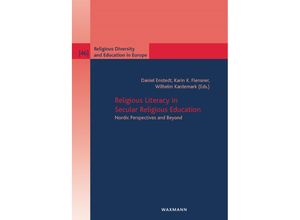In this volume questions are addressed revolving around religious literacy and education. The
term religious literacy is explored as the ability to discern and analyze intersections of
religion with social political and cultural life in pluralistic societies. Questions about
what types of religious literacies are possible in a non-confessional and even secular
educational context are in focus. It delves into the intricate relationship between religious
literacy religious education in the Nordic countries and the development of Subject knowledge
and generic abilities. The Nordic countries as modern secular welfare states with shared
characteristics provide an intriguing framework for comparison. The exploration of variations
in the organization content and goals of religious education in Finland Denmark Norway and
Sweden sheds light on the process of shaping educational content within specific historical and
societal contexts and the anthology broadens its scope by incorporating global perspectives
from the Indian Italian and Indonesian contexts. The volume features contributions from 18
researchers who explore empirical methodological and theoretical aspects of religious
literacy and education. The concept of religious literacy encompassing both knowledge and
generic skills proves to be indispensable for navigating the diverse religious and
non-religious worldviews present in pluralistic societies. Tailored for students educators
education researchers and policymakers this anthology contributes to the ongoing discourse on
religious literacy. It not only provides valuable insights into the Nordic educational
landscape but also fosters a global dialogue on the crucial role of education in understanding
diverse worldviews.



